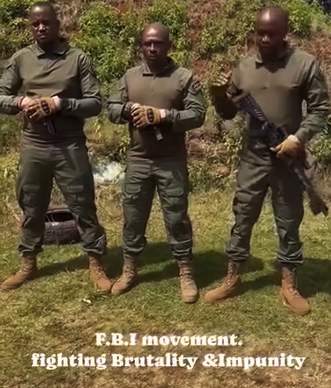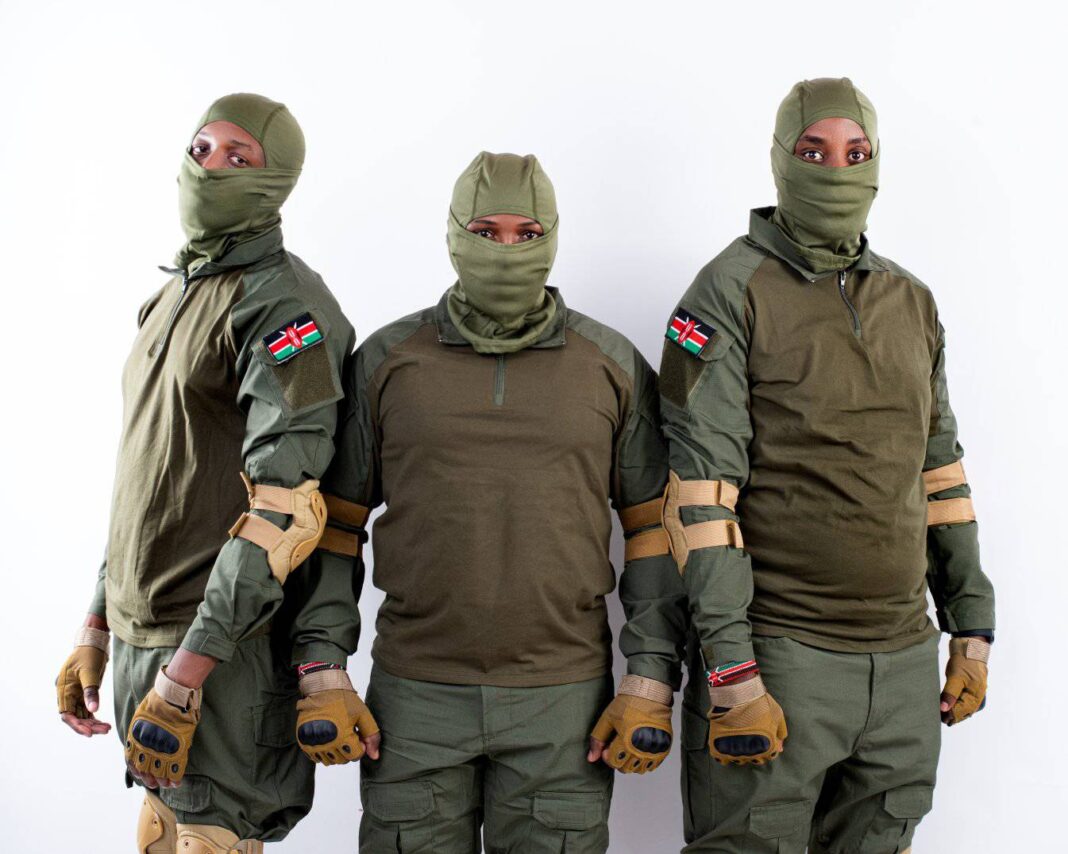Earlier this year, Prime Cabinet Secretary Musalia Mudavadi offered a striking cautionary note: “Whatever you do on social media will eff you up in the long term.”
His words, intended as general political advice, now echo with painful irony in the case of three former disciplined forces officers who are currently at the centre of a high-profile terrorism investigation.
Patrick Osoi, a former Kenya Defence Forces (KDF) soldier and self-declared 2027 presidential hopeful, alongside Jackson Kuria, known widely by his alias Cop Shakur, a former prisons officer dismissed during the 2024 Gen Z protests, were both arrested this week.
They are being accused of Allegedly using social media to broadcast their involvement in a controversial group they call FBI — short for Fighting Brutality and Impunity.
The duo, along with a third suspect, former police officer Kimathi Hiram, now under police surveillance, positioned themselves as a grassroots movement of ex- and serving officers defying unlawful political orders and speaking out against police brutality. Initially, their cause found traction, especially among Kenya’s Gen Z, who rallied behind them during last year’s protests.
But their digital footprint, a series of videos showing armed shooting drills, tactical training in military-style gear, and bold political rhetoric may now form the backbone of evidence in a potential terrorism case.
Osoi and Cop Shakur were arrested separately, Osoi in Lang’ata on Tuesday and Shakur during court proceedings where he appeared in solidarity with his colleague.
Prosecutors requested 14 days to hold Osoi pending investigations. He faces four serious charges, including illegal possession of firearms and facilitating terrorism-linked recruitment.
What started as a campaign to “restore dignity to the uniform” is now under scrutiny as a possible national security threat. Authorities argue that the group’s structure, training activities, and visual symbolism resemble militant mobilisation efforts.
Meanwhile, Hiram, the third man in the trio, has cultivated a loyal following across TV stations and digital platforms.
His open rejection of a transfer order, allegedly in protest against Transport Cabinet Secretary Kipchumba Murkomen, won him supporters who saw him as a defiant symbol of institutional conscience. Political pundits speculated he was preparing for elective office.
Now, all three find themselves in a precarious position: accused of crossing the blurry line between activism and insurrection.
Public sentiment has shifted. While many once applauded their defiance, the group’s decision to share firearm drills on social media, while clad in near-military gear, has been condemned. Critics argue the trio undermined their message by appearing “drunk on clout” rather than maintaining the solemnity their cause demanded.
In Kenya’s increasingly digital political arena, social media offers both opportunity and exposure. It can amplify a message, build movements like the Gen Z, and shape narratives but it can also invite legal consequences when optics override judgment.
This saga could end in convictions or vindication. But one thing is clear: The digital stage has little mercy for those who confuse visibility with invincibility.











